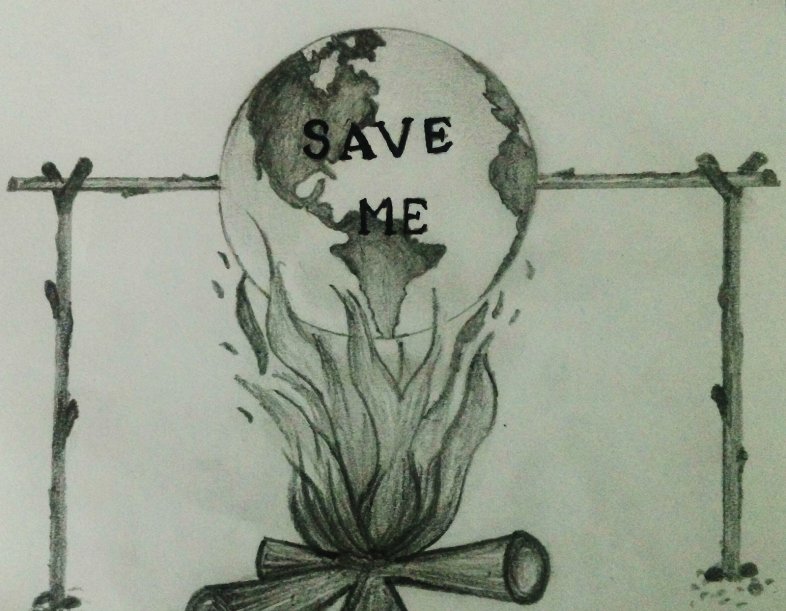Shubhadeep Pal
(Graduate Student, TIFR Hyderabad)
Image Credit: Anugraha and Shubhadeep
In the 21st century, we can see that the usage of energy sources like petrol, diesel, coal, and LPG is growing tremendously- day by day- for our transport, food processing, daily work etc. While their utility is unquestionable, they produce huge amounts of gases like Carbon dioxide as a major byproduct. Carbon dioxide is a well-known greenhouse gas that absorbs visible light and radiates heat energy. The amounts of such gases have only seen a monotonic increase over the years. Thus, it leads to capturing huge amounts of heat energy from sunlight and boosts global average temperature. Today, our planet is at an alarming stage and if immediate action is not taken, the results will be disastrous.
Climate scientists have named these catastrophic changes as ‘Climate Change’ and sometimes ‘Global Warming’. This rise of temperature is also drastically melting polar ice sheets and these sudden changes can also result in increased incidences of natural calamities like tsunamis, floods etc. that can devastate our flora and fauna. This is a big risk and may threaten the existence of human civilization in the near future. Scientists from all over the world have been trying to find a way to overcome all these issues. Prof. Andrew Bocarsly from Princeton University, for example, has pioneered the establishment of a company ‘Liquid Light’ to reduce carbon dioxide into liquid products particularly and preferably formic acid, to additionally overcome our oil dependency. Coca Cola (KO) has joined hands with ‘Liquid Light’ to accelerate their technology towards commercialization. Multiple ventures with similar goals have sprung up, four of which are: DyeCoo, Newlight Technologies, Novomer, and Skyonic. They too are striving to capture carbon dioxide and convert it into chemicals, plastics etc. This gas and carbon monoxide (CO) are essential sources for sustainable polymer synthesis which in turn may be used to improve coating technology, adhesives, sealants and elastomers. Recently, we have developed a carbon-based catalyst to convert carbon dioxide into valuable products like formic acid (J. Phys. Chem. C, 2018, 122 (41), pp 23385–23392), and charge transfer mechanism.
Two scientists, William D. Nordhaus and Paul M. Romar were awarded the Nobel Prize in Economics (2018) for their work on the effects of technological innovation and climate change on long term sustainable economic growth in the near future. The press release of the Royal Swedish Academy of Science stated, “At its heart, economics deals with the management of scarce resources. Nature dictates the main constraints on economic growth and our knowledge determines how well we deal with these constraints.” Even though scientists are trying very hard to find ways to ameliorate these effects, we should also bear a few crucial responsibilities of protecting our earth. Wynes, an environmental scientist, says that, we must obey four rules namely, having fewer children, living without a car, avoiding transatlantic flights, and eating a plant-based (mostly vegetarian) diet. A constitutional climate lawsuit filed against the U.S., known as “Juliana vs U.S.”, argues that not acting against climate change is equivalent to violating the constitutional rights to life, liberty and property of future generations. Christiana Figueres thus concluded, “There will always be those who hide their heads in the sand and ignore the global risks of climate change. But there are many more of us committed to overcoming this inertia. Let us stay optimistic and act boldly together.”

